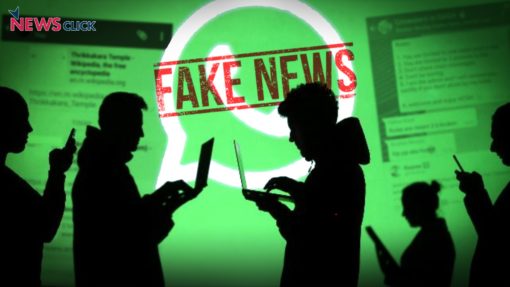There was a time when ‘Good Morning’ messages were causing much “pain” to internet giants?

It was the beginning of last year when the obsession of Indians with starting their day with a deluge of ‘Good Morning’ messages flooded WhatsApp, and generated a lot of chuckle. But it but also raised serious concerns such as the overloading WhatsApp servers, and clogging Android phones.
We were told how millions of Indians were getting online for the first time and how everyone was getting hooked on to WhatsApp. Their obsession with sending such messages was causing “..[s]ome serious pain for Internet giants.” Not only WhatsApp but even Google researchers in Silicon Valley had noted how “[I]nternet newbies are overloading their Android phones with Good Morning messages.”
Nobody then had any premonition that India would shortly come under scanner for the spread of online disinformation and fake news resulting in a string of murders and growth of anti-minority sentiments. A report published by BBC’s Beyond Fake News Series had tried to corroborate this.
In the programme, Santanu Chakrabarti, the head of audience insight at BBC World Service, who conducted the study, shared how the “rise of the Hindu nationalist prime minister, Narendra Modi, had made many Indians feel as though they had a patriotic duty to forward information.”
According to Chakrabarti, Indians “..[a]re effectively looking for validation of their belief systems and on these platforms, then, validation of identity trumps verification of the fact.” The large study, focussing on Kenya, Nigeria and India, studied how people react to and spread fake news. Cheap cost of data coupled with rising (what is construed as) nationalist sentiment was found to be behind the widespread sharing of fake news.
Actor Prakash Raj, speaking on the challenges posed by fake news at the ‘Beyond Fake News Conference’ organised by BBC attributed this phenomenon to the Bharatiya Janata Party and summarised it by saying how “They have intermingled nationalism, religion and patriotism and so they flood posts on social media blurring historical facts to push this agenda,”
What was worrying was that this investigative report clearly suggested a strong overlap between fake news and pro-Modi political activity. It suggested that the ruling party was actively and effectively peddling fake news about Prime Minister Modi across social media platforms such as Twitter, WhatsApp and Facebook’ .
Courtesy: Indian Cultural Forum
